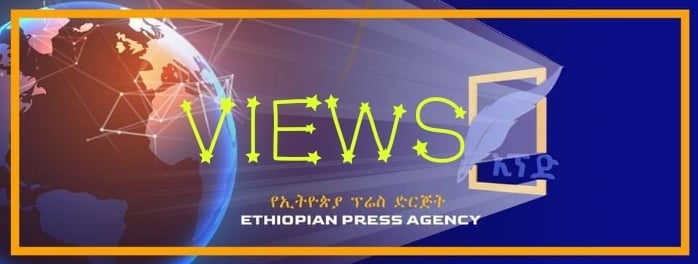
Donor countries’ understanding of poor countries seems to be that poor countries should be obedient and submissive. They prefer to force or intimidate such countries not to negotiate with them. It should be clear that such condescending attitude does not describe countries like Ethiopia. Ethiopia is one of the poorest countries in the world but the psychology of the people is far from being submissive.
This has been evidenced by Ethiopian history from ancient time. The patriotism of the people does not come from money or profit. The people proudly say “No matter what challenges we face, we are determined to protect our country at the cost of our life” In Ethiopia, a country is like a mother. Even though a mother is poor, she will not be replaced by anything. According to Ethiopians, there is no joke over a country and a mother.
The unity of Ethiopian people is unbreakable as it emanates from the value of living together. The unique culture of Ethiopians is that people of all faiths, especially Christians and Muslims live together in unity. On the other hand, Ethiopia is a country with a long history, more than 80 nationalities and many cultures. Some of these cultures include sharing what we have, sharing people’s joys and sorrows and hospitality. As a result of the development of these cultural values, foreigners feel more comfortable to live in Ethiopia.
Ethiopians have been known for their hospitality since ancient times. For example washing guest’s feet and leaving the bed for the guests is a long-standing tradition of the people that display the utmost happiness of the people in welcoming others. In both rural and urban areas of Ethiopia, guests are treated like kings. The hospitality of Ethiopians often attracts foreigners to the extent that they regard the country as their second home. In short, hospitality and the belief in sharing what they have are the cultural values of Ethiopians.
Human support should not be interpreted only in financial terms. Man naturally seeks companionship. It is customary for Ethiopians to share the grief of one another. In a country of many millions of people, it is important to live together, sharing the problems of one another and building a family atmosphere. Ethiopia has a population of over 110 million. These people have lived in love and care for centuries. Currently, Ethiopia is facing some challenges with regard to national unity. Fortunately, Ethiopians have strong values that can help them withstand many challenges.
No one can stand alone. I think the world itself wants people to help each other. Whether we are rich or poor, the difference is only who we ask and what we ask for. Caring and sharing is another strong traditional value of Ethiopians. In this country, sharing is a good culture among, not only the rich, but also the poor. In the ups and downs of life, people who have difficulty getting their daily bread get help from this culture of caring and sharing. The culture of peaceful coexistence is very strong in Ethiopia. Most problems are solved by the community in their own way. For instance, conflicts among people are settled by the elders of the community. Elders are greatly respected among all communities in Ethiopia and play a central role in all the affairs of the community.
In today’s world, money seems to be given more importance than human beings. Everything seems to be done by calculating individual gains. But it is a serious mistake to try to break the human psyche by making people give up their cherished values for financial benefits. True, this is a world where happiness and sorrow, gain and loss coexist. Hence, it is not appropriate to consider a country or an individual person as strong or weak in terms of their financial position. This is what Ethiopia and Ethiopians are facing right now. Some
countries are pushing Ethiopia to give up the country’s benefits and rights because it is poor. Why is so much external pressure put on Ethiopia in recent times? This is a question that many have not been able to answer. These countries should learn the facts about Ethiopia before doing so. They may be merely looking at the internal challenges that the country is facing. The other aspect of the pressure being put on Ethiopia is related to the Great Ethiopian Renaissance Dam. This dam is a pan-Ethiopian project. This is a dam all Ethiopians believe shall lift them out of poverty and darkness. Therefore, those putting pressure on Ethiopia in relation to the dam from various corners of the world should have empathy.
In short, it should be understood that poverty does not break a strong psyche of people. So it is not morally appropriate to intimidate a nation or an individual to give up its psyche or to accept the desires or intentions of outside forces for petty financial gains.
BY YORDANOS AYENEW
The Ethiopian Herald May 22/2021




